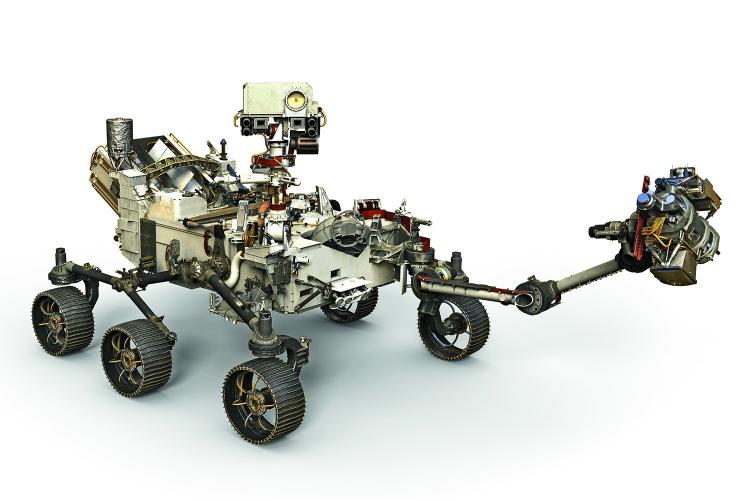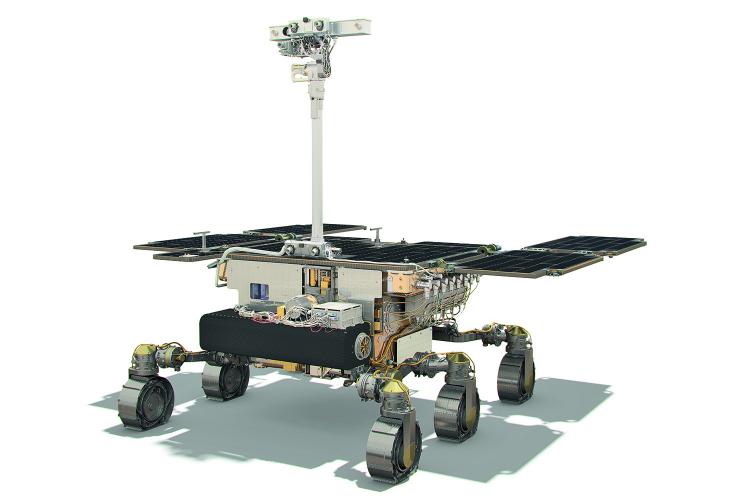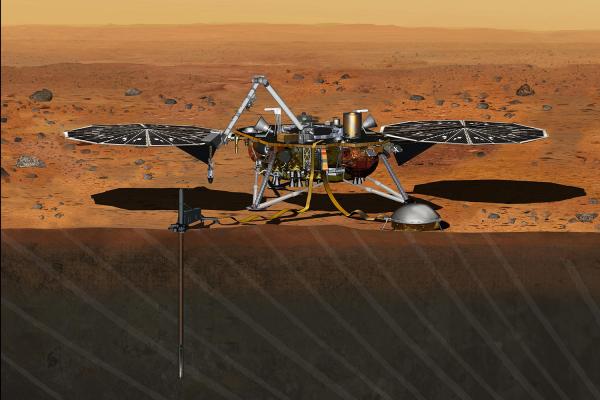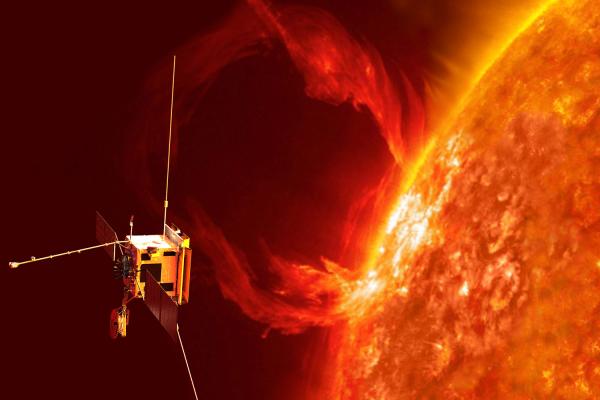
NASA – Mars 2020 - Perseverance
Start: July/August 2020
Rocket: Atlas V-541
Mission: Finding out if there has ever been life on Mars. Taking soil samples and sealing them in containers that can later be collected and brought back to Earth.
Cost: 2.1 billion US dollar
maxon drives: Ten brushless DC motors (for handling the soil samples), EC 32 flat and one EC 20 flat with a planetary gearhead GP 22 UP, everything specifically optimized for the Mars mission in cooperation with NASA/JPL

ESA – ExoMars - Rosalind Franklin
Start: July/August 2022
Rocket: Proton
Mission: Looking for former or current life. A drill takes soil samples from a depth of two meters. The rover analyzes the samples on-site with measuring instruments.
Cost: 1.8 billion dollar (incl. the preliminary mission of 2016)
maxon drives: More than 50 actuators, from the wheel drive to sample distribution to camera movement, with 17 different configurations of brushed or brushless DC motors (such as DCX 10, DCX 22 or EC 40) in combination with gearheads (such as GP 22 HD), brakes and encoders
Planet Mars
- Mars is the fourth planet from the sun and is considered to be an earthlike planet.
- Average temperature: –55°C
- Diameter: 6.779 km
- Orbital period: 687 days
- Length of the day: 1d 0h 40m
- Gravitation: 38 percent of the gravity on Earth
Do you want to know more? Our drive.tech blog provides more information on the ExoMars mission and the Mars2020 mission





